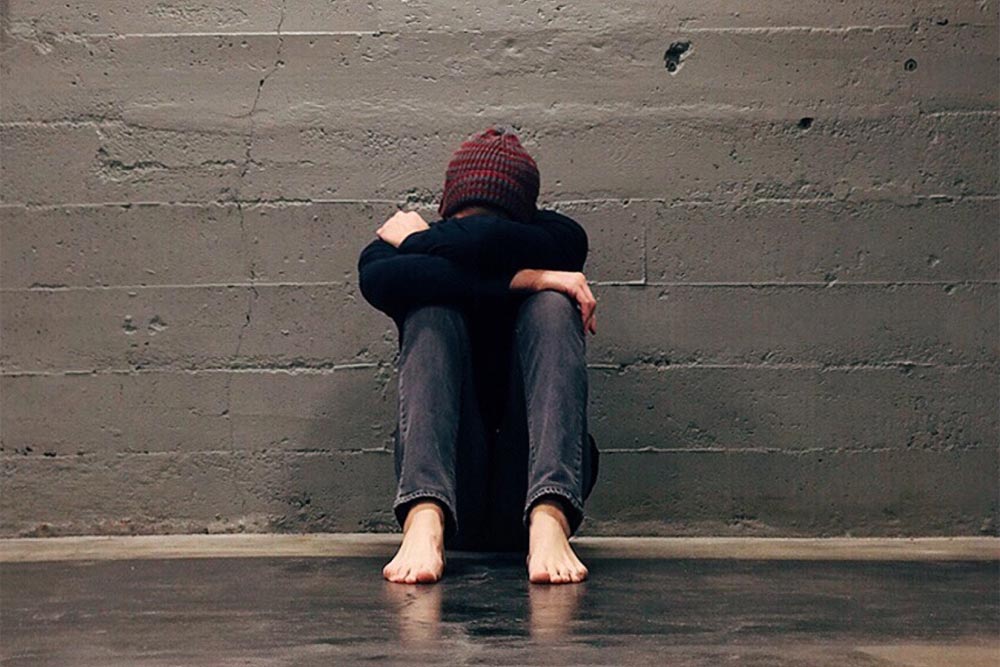
The LGBTQ+ community is especially vulnerable to mental health problems, including anxiety, depression, and substance use disorders. Today, an estimated 60% of people identifying as LGBTQ+ will have a mental health disorder in their lifetime, which means that LGBTQ+ individuals are more than twice as vulnerable to mental health problems. That exacerbates in relation to substance use disorders, where the LGBTQ+ community is anywhere from twice to four times as likely to have a substance use disorder.
The National Survey on Drug use and Health shows that 21% of sexual and gender minority adults struggle with substance use disorders vs about 11% in the general population, for a total of about 16%.The complex interplay between the problems faced by the LGTBQ+ community and mental health are an important factor in that. This means that treating substance abuse in someone how identifies as LGBTQ+ requires acknowledging those issues and treating the trauma caused by stigma, homophobia, transphobia, gender dysphoria, shame, lack of fitting in, and abuse.
The LGBTQ+ Community and Substance Abuse
It’s a well-studied fact that the LGBTQ+ community is more vulnerable to mental health disorders including substance use disorders. Often, that relates to other life experiences, especially early trauma, inability to safely manage self-expression, and feelings of being different or not fitting in.
The LGBTQ+ community is also at especially high risk of domestic and interrelationship violence, which increases risks of mental health problems and substance use disorders.
That’s often exacerbated by social stigma, shame, family rejection, and in how common it is for the LGBTQ+ scene to drink and use drugs as part of culture. The following sections discuss each of these issues in detail.
Early Childhood Trauma
The Adverse Childhood Experiences (ACEs) study directly links incidents of trauma experienced before the age of 16 to heightened risk of addiction, mental health disorder, and physical health problems. The scale links increases in experiences of trauma to heightened risk, with increases in risk taking behavior, poor coping mechanisms, poor social behavior, and reliance on substances and heightened experiences to self-medicate.
Because persons who are not cisgender and who are not straight are at significantly higher risk for domestic violence, family rejection, social rejection, bullying, and feelings of being ostracized from peers, they are significantly more likely to have more Adverse Childhood Experiences, and therefore a higher vulnerability to addiction.
Trauma
LGBTQ+ individuals are at an increased risk of experiencing trauma as adults. This relates to:
- Increased risk of domestic violence and inter-partner violence
- Stigma and shame
- Hiding gender and sexuality
- Inability to practice self-expression
- Stress from slights, stigma, and bias from the community
- Family rejection
- Homophobia and transphobia, including internalized
- Lack of resources for mental health support

These can all result in real trauma, without considering that people identifying as LGBTQ+ are significantly more likely to experience violence outside of the home in the form of attacks, challenges, and being physically beaten. As a result, rates of trauma, PTSD, and high levels of stress are significantly higher in the LGBTBQ+ community than in the general population.
Get Your Questions Answered
Our expert & caring staff on site are available 24/7. Call us today.

Mental Health Problems
The same risk factors that increase vulnerability to substance abuse increase vulnerability to mental health disorders including depression, anxiety, and PTSD. In addition, those factors are more likely to trigger bipolar disorder, schizophrenia, and borderline personality disorder. Many people who are not cisgender also experience gender dysphoria which can be traumatic on its own.
This leads to higher rates of using substances to cope, higher rates of suicidal ideation and attempts, and increased need to self-medicate to manage life. With as many as 60% of LGBTQ+ individuals qualifying for a mental health disorder diagnosis, LGBTQ+ individuals are four times as likely to have mental health problems as the general population.
Exposure to Drugs & Alcohol
Drugs and alcohol are a standard part of life for many people but the culture of drugs and alcohol in the LGBTQ+ community is especially bad. That often relates to the fact that homophobia means that homosexual gatherings were actually prosecuted by the police – leading them to be prime spots to sell drugs because they were already secret. As a result, drug use and raves are very common as part of culture and adults who are stressed and who have poor impulse control because of trauma are more likely to seek out quick ways to feel good. However, it does mean that the LGBTQ+ community is more exposed to drug use and heavy alcohol use than many other communities in the United States.
Building Treatment Plans Around LGBTQ+ Needs
Finding and seeking mental health and substance abuse treatment is difficult for the general population but often more so for people who identify as LGBTQ+. For example, one study shows that 70% have experienced stigma or bias during treatment. And, as many as 24% of have been denied care at all because of their gender or sexuality.
That stigma, plus the significant amount of specific issues faced by the LGBTQ+ community, mean that the community needs unique care built around those needs.
LGBTQ+ Only
Individuals who identify as LGBTQ+ face significant issues including stigma, homophobia, rejection, social isolation, and low self-esteem. These issues must be understood and incorporated into treatment in order for treatment to be effective. That necessitates custom programs and tracks, built around offerings support and treatment to not only the substance use disorder but also the underlying causes. Offering LBGTQ+ focused programs at rehab centers creates safe spaces, reducing fears of stigma, violence, or harassment. And, studies show that doing so improves outcomes, because people are better able to invest in treatment and not in ensuring that they stay safe through treatment.
Personalized Care
The LGBTQ+ community is not homogenous, instead, each person has their own unique and individual history, with patterns and life problems that might contribute to substance abuse in different ways. Rehab relies on behavioral therapy, which means investigating the root of problems and treating those causes. That requires significantly personalized care and treatment tracks, which may involve dealing with trauma, coping with self-esteem problems, overcoming social barriers, or learning to feel accepted. From there, you can base the treatment approach on individual motivation, progress, and aptitude.
Emotional and Psychological Support
Understanding, support, and affirmation are seen as critical elements of any treatment program but that is more true in the case of the LGBTQ+ community. It is critical that mental healthcare providers be able to deliver understanding and reaffirmation for gender and sexuality – without judgement.
For this reason, staff involved in LGBTQ+ programs must be trained to do so and to handle those aspects with care.

Getting Help
If you or your loved one is struggling with substance abuse, it’s important to reach out and to get help. The LGBTQ+ community is significantly vulnerable to drug and alcohol abuse and that goes on to impact quality of life, mental health, and ability to live a fulfilling life at all. Trauma, mental health problems, and lack of support mean that people in the LGBTQ+ community are significantly likely to turn to drugs and alcohol to cope, but good healthcare, mental health support, and treatment will actually improve quality of life.
If you or your loved-one struggles from alcoholism or other substance abuse please contact us today and speak with one of our experienced and professional intake advisors about our detox, and residential treatment programs. 10 Acre Ranch also has specialty tracks like our pet friendly drug rehab and couples substance abuse treatment programs. We’re here to help you recover.






